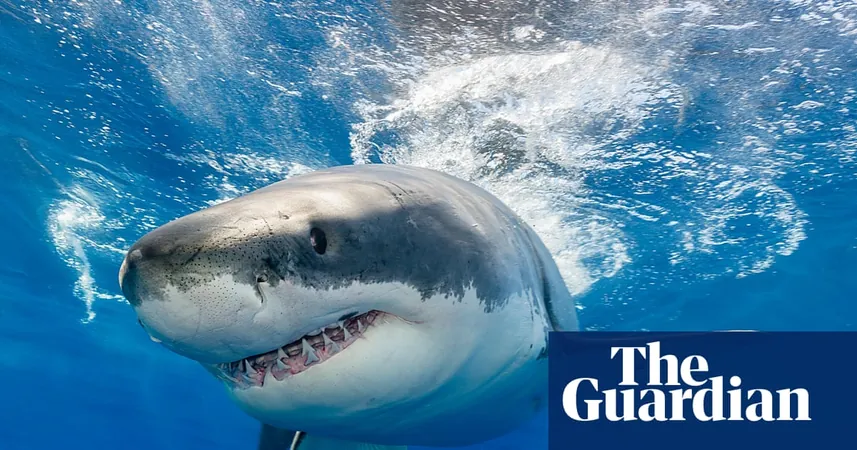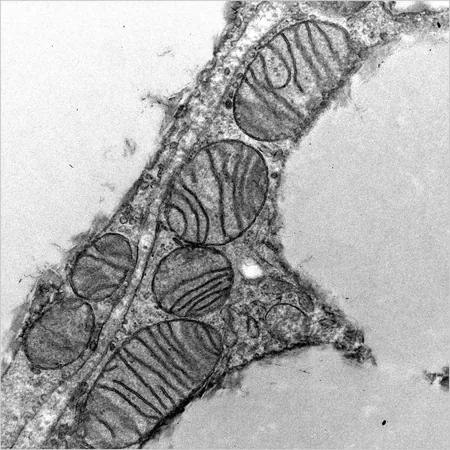
Toothless Sharks? Ocean Acidification Threatens Their Survival Arsenal!
2025-08-27
Author: Rajesh
Sharks Without Teeth: A Surreal Future?
Imagine a world where sharks, the apex predators of the ocean, are rendered toothless! While this might sound like a fantasy come true for swimmers and surfers, research reveals a chilling reality. A recent study warns that ocean acidification could be eroding sharks' critical weapon: their teeth.
The Teeth That Bite Back!
Sharks are equipped with multiple rows of teeth that swiftly replace any losses they incur. However, as our oceans acidify rapidly, these vital tools are becoming increasingly vulnerable. Should their teeth fail to regenerate at a sufficient pace, sharks may find it challenging to hunt effectively, raising serious concerns about their populations and the balance of marine ecosystems.
What’s Causing the Problem?
Ocean acidification occurs when excess carbon dioxide is absorbed by the sea, lowering pH levels and creating a cascade of harmful effects. By the year 2300, predictions indicate that ocean acidity could escalate dramatically, potentially plummeting the average pH from 8.1 to a concerning 7.3, which would have severe ramifications for countless marine species.
A Dive into Research: What Scientists Discovered
To investigate these effects, researchers from Heinrich Heine University in Germany placed 60 discarded shark teeth, sourced from blacktip reef sharks, into artificial seawater tanks that simulated current and future ocean conditions. After an eight-week study, findings were alarming: Teeth in the more acidic environment sustained about double the damage, displaying issues such as increased root erosion and altered serration.
The Ripple Effect: From Teeth to Ecosystem Stability
The deterioration of shark teeth isn’t an isolated issue. With overfishing leading to a decrease in prey availability, the dental health of these predators adds to their challenges. There’s a pressing need to reduce human-induced CO2 emissions to curb further acidification of the oceans.
Could Sharks Adapt?
While the future looks grim, some scientists remain optimistic. Maximilian Baum, the lead author of the study, suggests that sharks could adapt by enhancing their tooth replacement rates and improving resilience in their dentition.
Expert Insights and Future Implications
Lisa Whitenack, a shark tooth expert, adds valuable insight, noting that despite acidification, sharks may still find ways to function effectively. Will damaged teeth compromise their ability to catch prey? Future research is set to explore these critical questions and unveil how resilient these magnificent creatures might prove to be.
Conclusion: A Call to Action!
The data is clear: If we want to avoid a future with toothless sharks prowling our oceans, it’s imperative to take action now against climate change. The survival of these incredible marine predators—and the balance of marine ecosystems—is at stake.



 Brasil (PT)
Brasil (PT)
 Canada (EN)
Canada (EN)
 Chile (ES)
Chile (ES)
 Česko (CS)
Česko (CS)
 대한민국 (KO)
대한민국 (KO)
 España (ES)
España (ES)
 France (FR)
France (FR)
 Hong Kong (EN)
Hong Kong (EN)
 Italia (IT)
Italia (IT)
 日本 (JA)
日本 (JA)
 Magyarország (HU)
Magyarország (HU)
 Norge (NO)
Norge (NO)
 Polska (PL)
Polska (PL)
 Schweiz (DE)
Schweiz (DE)
 Singapore (EN)
Singapore (EN)
 Sverige (SV)
Sverige (SV)
 Suomi (FI)
Suomi (FI)
 Türkiye (TR)
Türkiye (TR)
 الإمارات العربية المتحدة (AR)
الإمارات العربية المتحدة (AR)